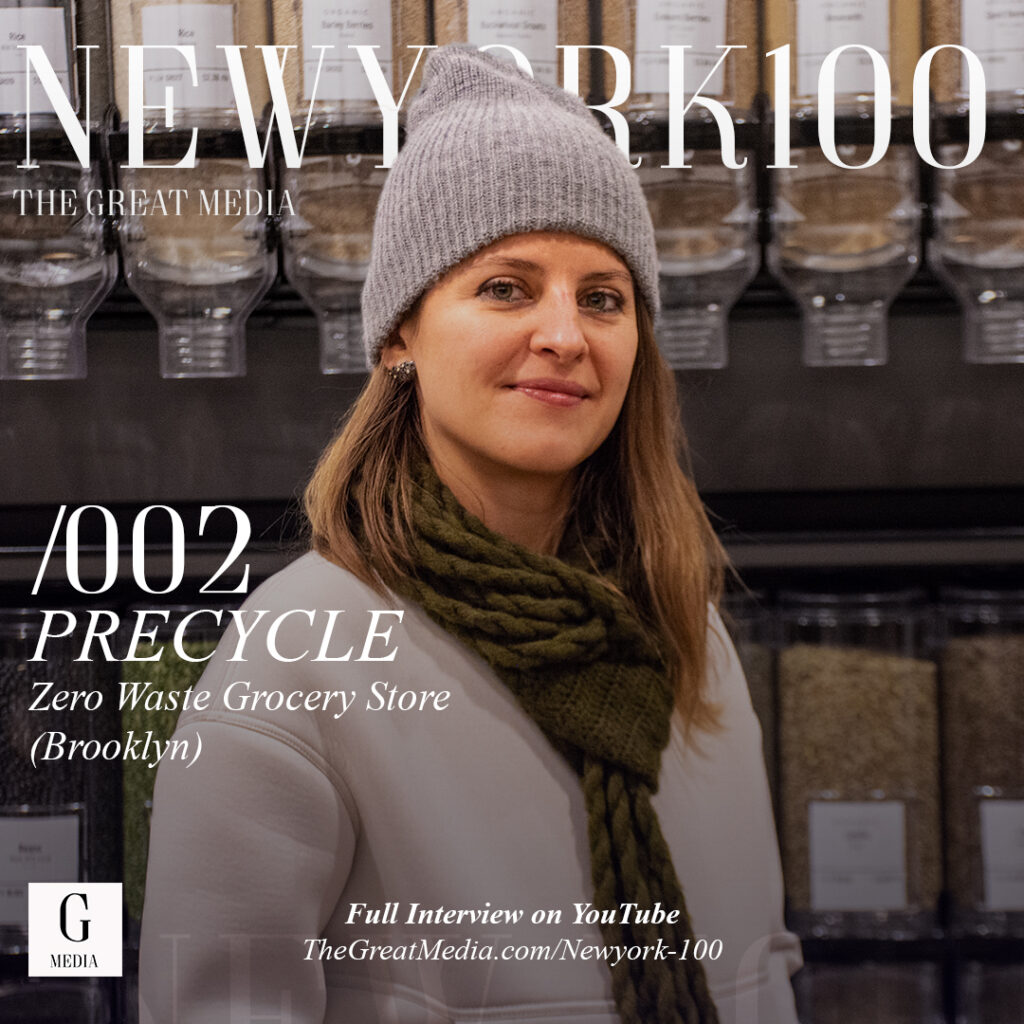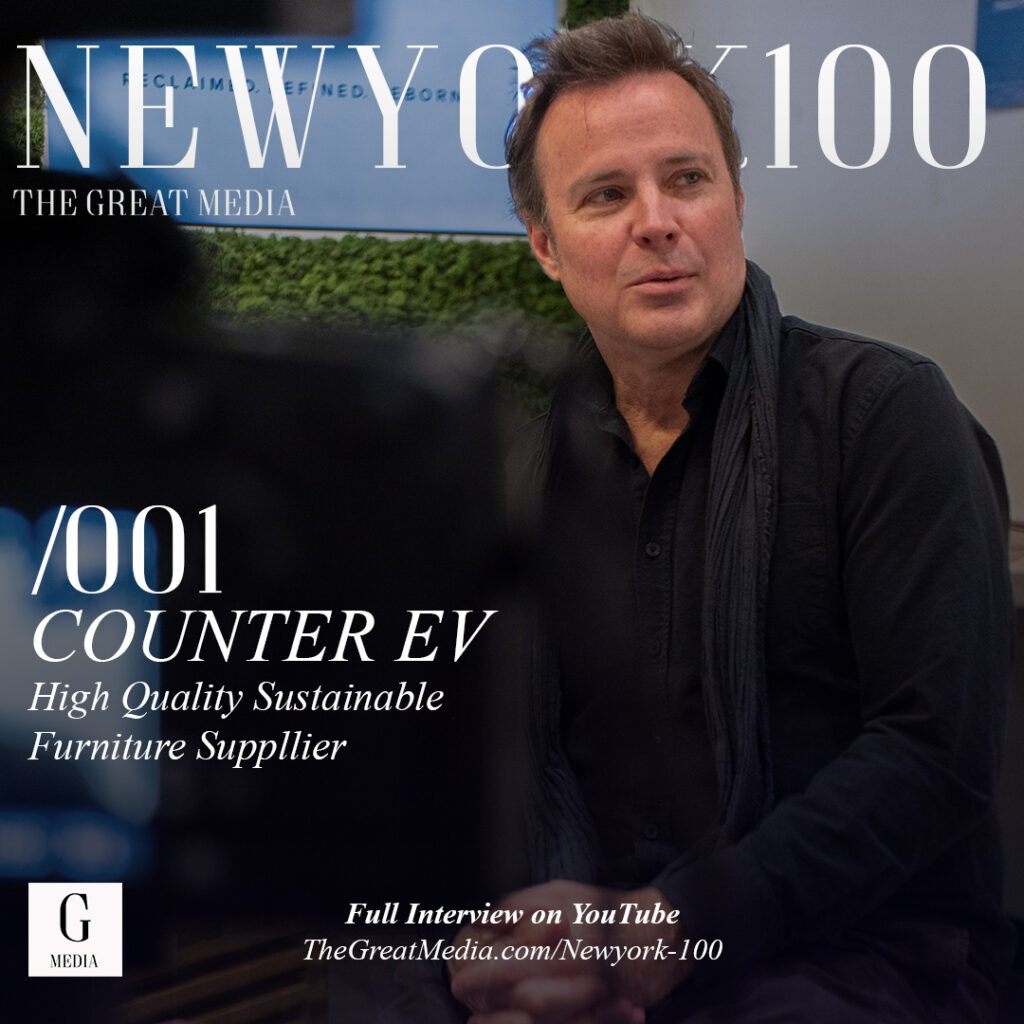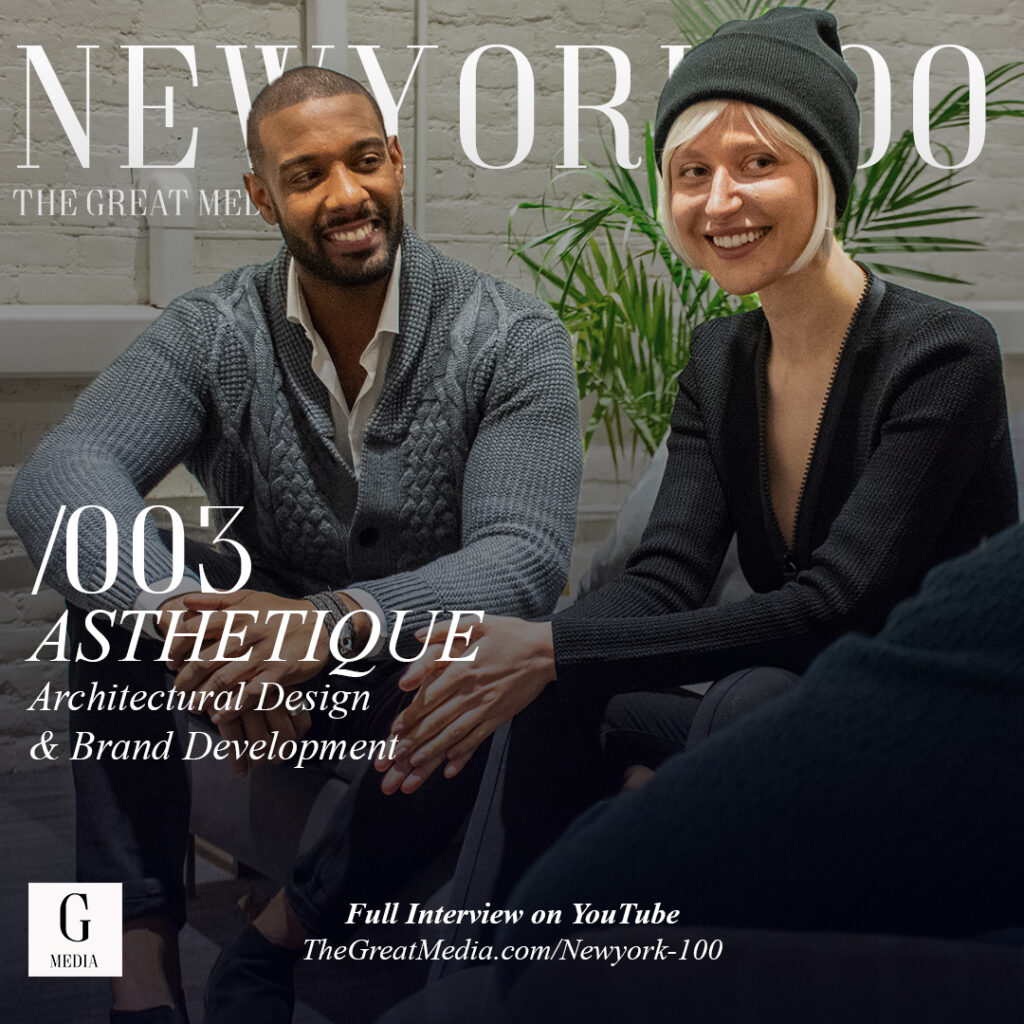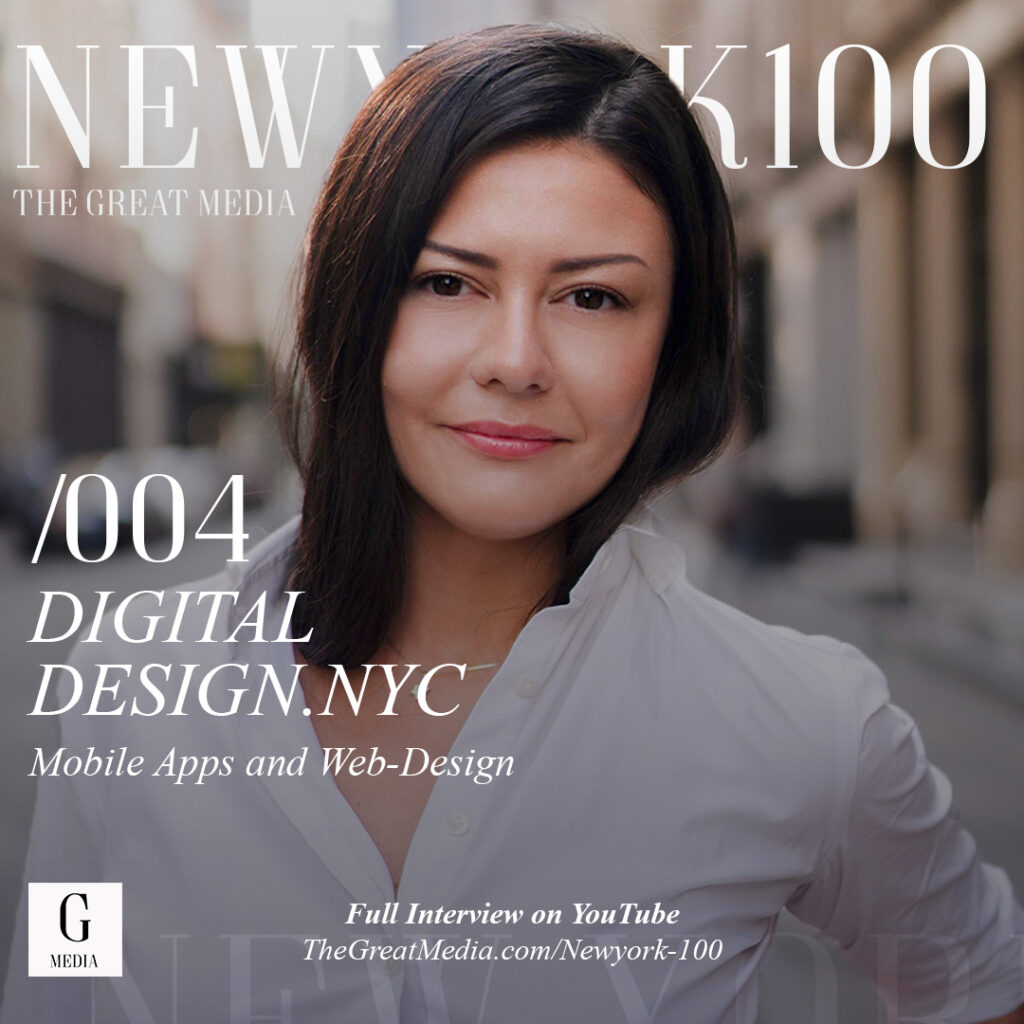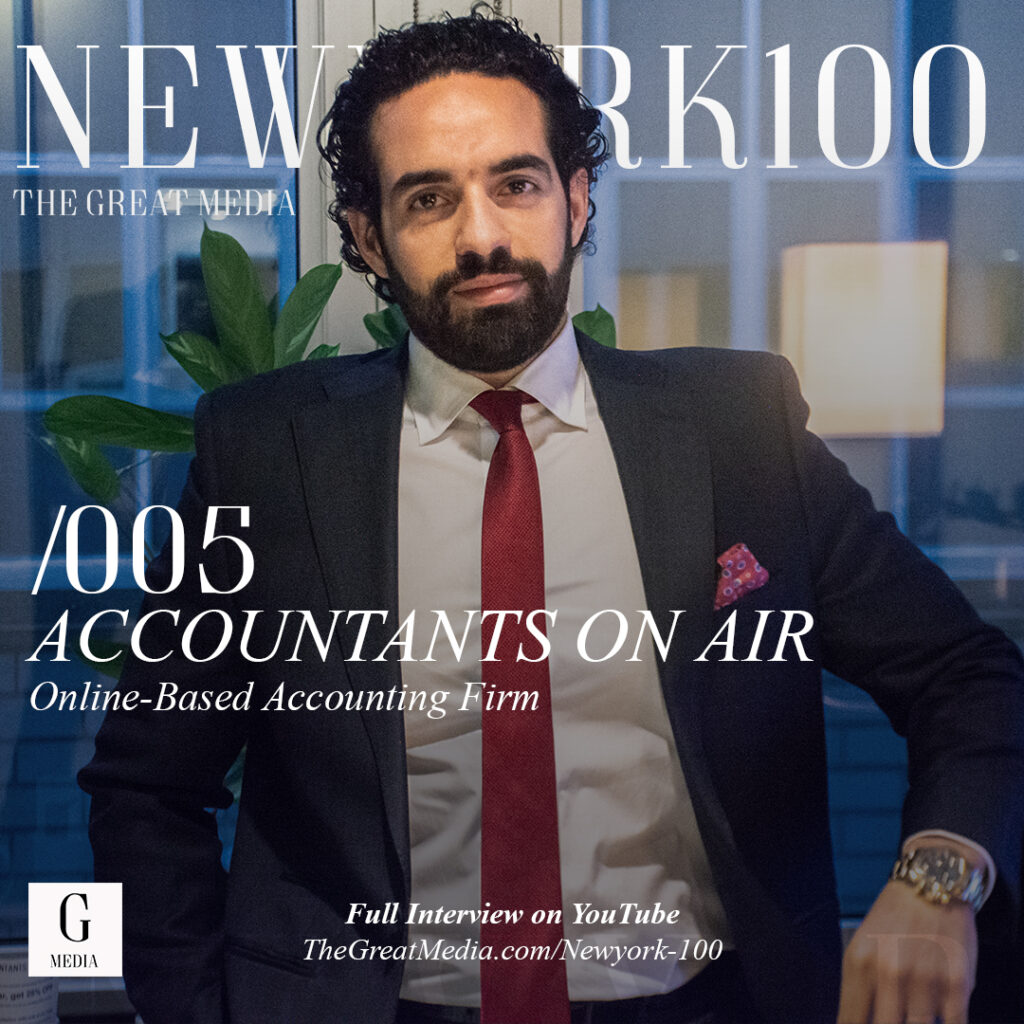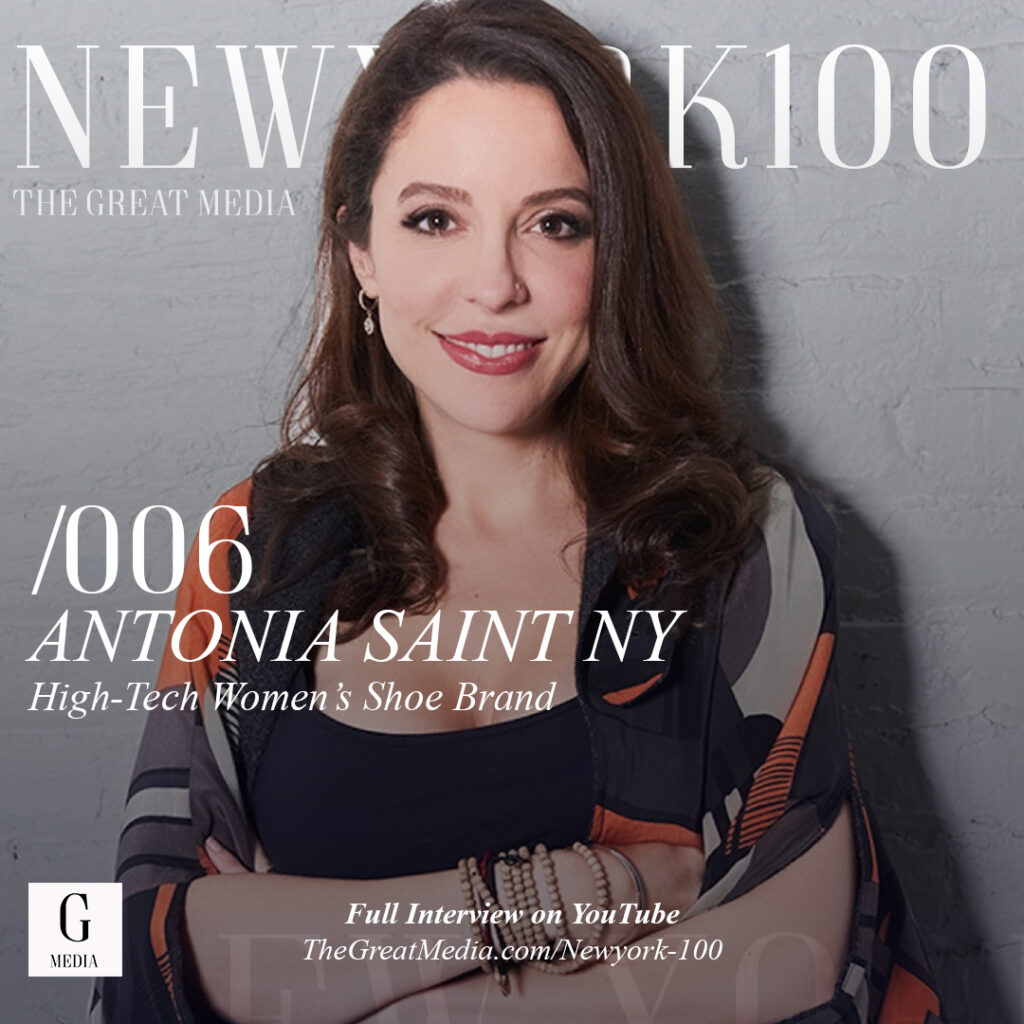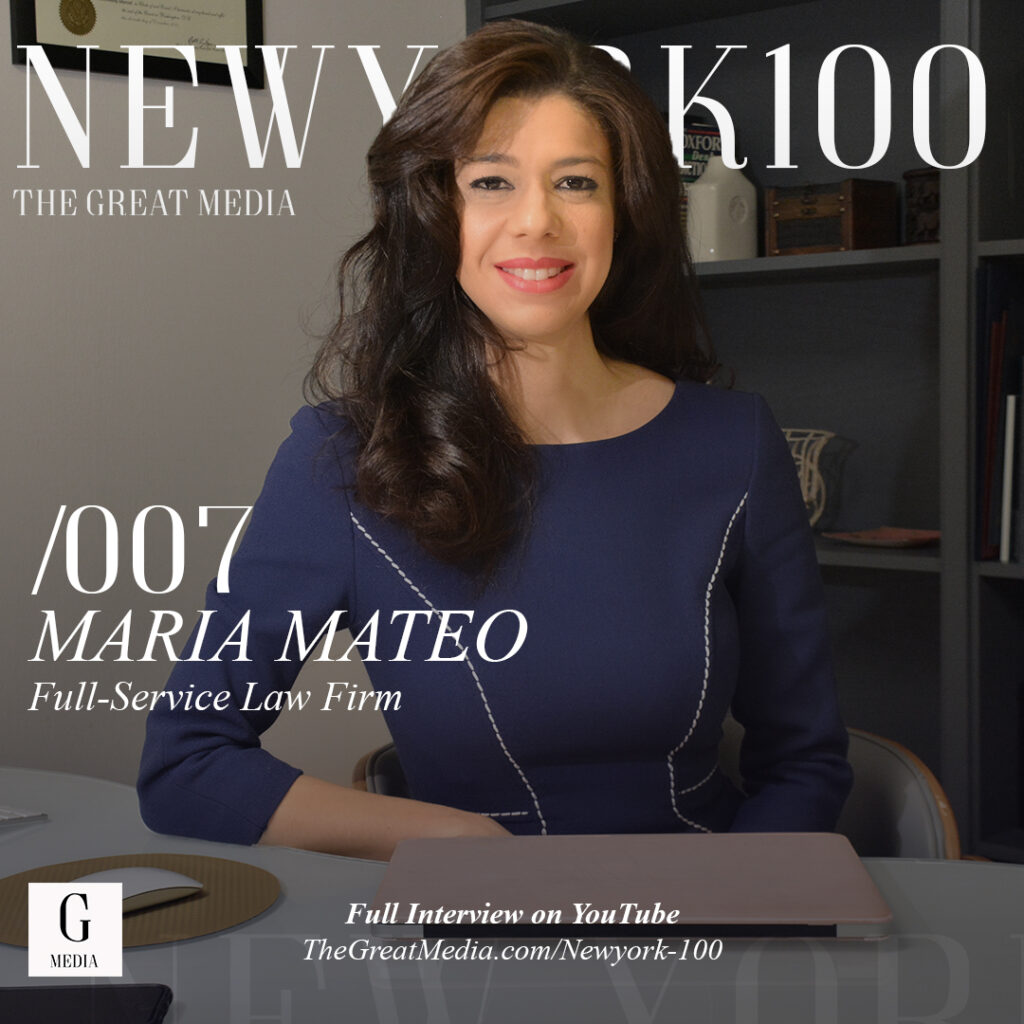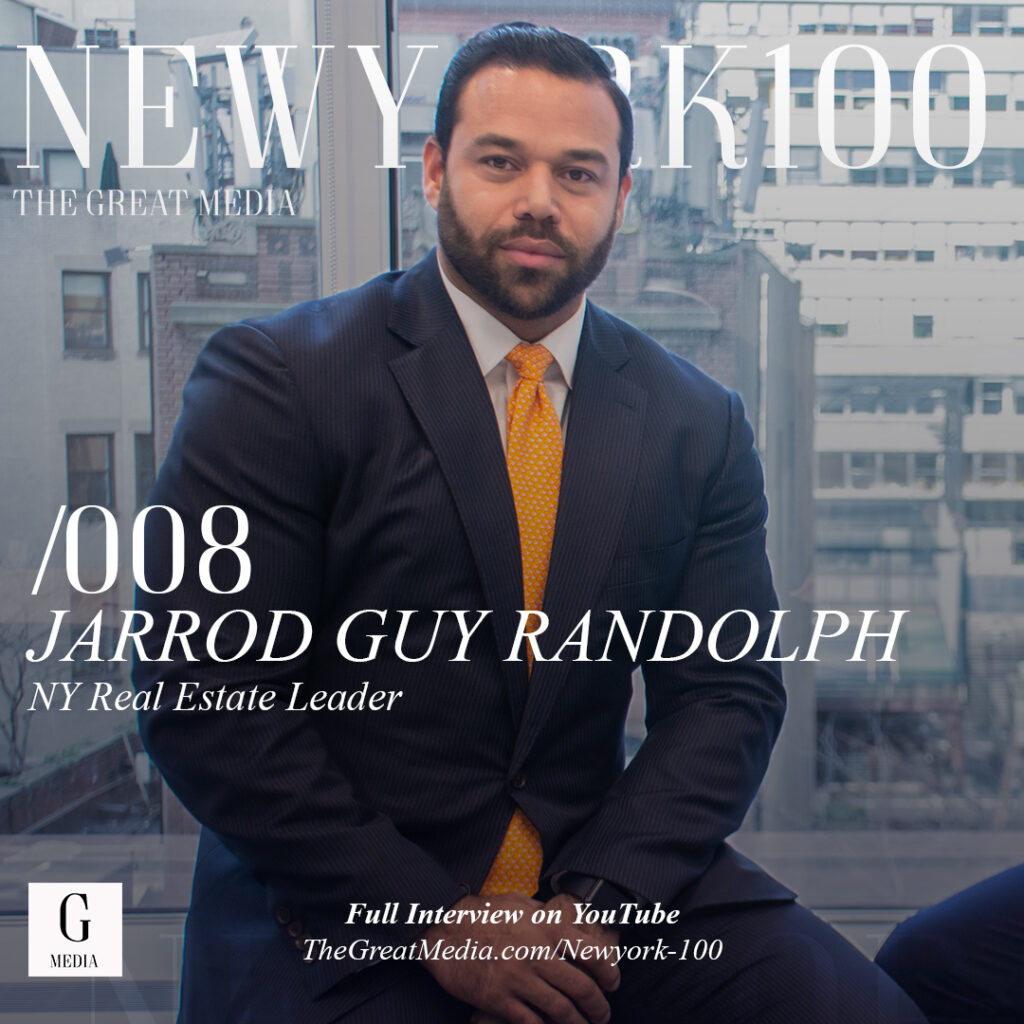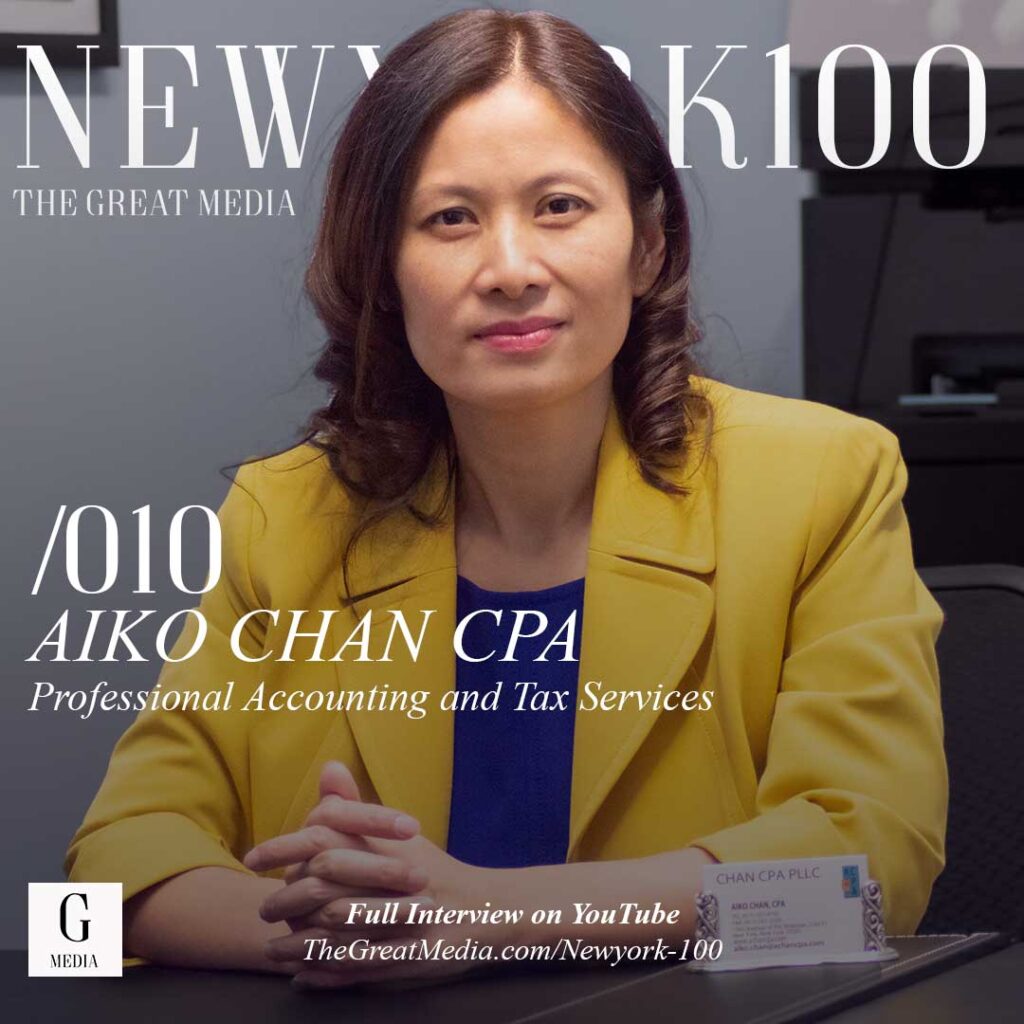New York 100
Full Interview With Precycle
Precycle
About Katerina
Katerina grew up in Riga, Latvia in the era of Soviet Union. She has seen first hand the empty store shelves. Values of not wasting food and getting most use of resources were instilled in her from an early age. As a young child she remembers bringing her jar to the market to fill it with sour cream. Plastic bags were rare and were admired.
As a young adult, Katerina arrived in NYC in the early 21st Century. Quickly, the abundance and accessibility to food and other “necessities” started to become a norm and were taken for granted. Disposable was convenient and consumerism prevailed.
There was a turning point in Katerina’s life when she began to realize the outputs that are created by simple everyday choices. Little by little she started to replace disposable with reusable and challenged herself with finding solutions to avoid as much waste as possible. One day, her son came from school and asked a question “mommy, do you know how long the plastic will remain in the landfill?” And so, in April of 2015 the idea of Precycle began to take shape.
“I opened the store because I had this little blister on my brain telling me there was a different way to do things,” says Katerina Bogatireva, the founder and owner of Precycle. Once she saw how pervasive plastic was in her life, she wanted to do something to help herself and others break free from it.
“It was like I was dropped in the middle of the sea and I couldn’t see the coast, but I had to swim forward toward a solution,” she says. And what she came up with was a plastic-free grocery store.
For Bogatireva of Precycle, the challenge was to figure out how much plastic snaked through normal supply chains and into the hands of consumers—and then get rid of it. Providing bulk foods that customers can scoop into their own containers to take home was a central concept.
About Precycle
Precycle aims to address the growing problem of plastic pollution by empowering customers to reduce food and packaging waste by making different, yet still convenient, choices. More than simply bulk, Precycle sells fresh local produce without packaging, while also working up in its own supply chain to dramatically reduce and eliminate plastic and other waste.
Precycle is practicing a new way to go food shopping. There’s food, but no packaging. Customers must bring their own containers and bags, and fill them up.
“It’s very straight forward, it’s easy to navigate and figure out even if you just stumble in and you’re like what’s going on,” one shopper said.
Precycle says it’s one of the first zero-waste, package-free food stores on the East Coast. The selection is more limited than at a traditional store but there is still a wide variety of items, from beans, to grains and honey. During check out, the store subtracts the weight of the container so that customers only pay for the food they’re buying. Precycle also sells recycled bags and reusable glass jars for customers needing them.
In This Episode
Climate Change is a Global Problem
According to the EPA, 23% of the trash Americans are sending to landfills comes from containers and packaging, mostly of which is food packaging. This problem extending stemming from our Major cities such as New York, and are affecting the globe.
Sourcing Organic and Sustainable Products
It’s quite difficult for small farmers to obtain an ‘organic’ certification. However, this does not stop farmers from implementing sustainable practices to their goods. Precycle sources all of their products from organic and sustainable sources. This also involves working with recycling packages.
What to Know before Building a Business in New York
D.O.B . (Department of Buildings) is an organisation you must be aware of if you wish to open up a store in New York.
Connect With Precycle
WEBSITE: www.precyclenyc.com
INSTAGRAM: www.instagram.com/precyclenyc
FACEBOOK: https://www.facebook.com/precyclenyc/
About Katerina
Katerina grew up in Riga, Latvia in the era of Soviet Union. She has seen first hand the empty store shelves. Values of not wasting food and getting most use of resources were instilled in her from an early age. As a young child she remembers bringing her jar to the market to fill it with sour cream. Plastic bags were rare and were admired.
As a young adult, Katerina arrived in NYC in the early 21st Century. Quickly, the abundance and accessibility to food and other “necessities” started to become a norm and were taken for granted. Disposable was convenient and consumerism prevailed.
There was a turning point in Katerina’s life when she began to realize the outputs that are created by simple everyday choices. Little by little she started to replace disposable with reusable and challenged herself with finding solutions to avoid as much waste as possible. One day, her son came from school and asked a question “mommy, do you know how long the plastic will remain in the landfill?” And so, in April of 2015 the idea of Precycle began to take shape.
“I opened the store because I had this little blister on my brain telling me there was a different way to do things,” says Katerina Bogatireva, the founder and owner of Precycle. Once she saw how pervasive plastic was in her life, she wanted to do something to help herself and others break free from it.
“It was like I was dropped in the middle of the sea and I couldn’t see the coast, but I had to swim forward toward a solution,” she says. And what she came up with was a plastic-free grocery store.
For Bogatireva of Precycle, the challenge was to figure out how much plastic snaked through normal supply chains and into the hands of consumers—and then get rid of it. Providing bulk foods that customers can scoop into their own containers to take home was a central concept.
About Precycle
Precycle aims to address the growing problem of plastic pollution by empowering customers to reduce food and packaging waste by making different, yet still convenient, choices. More than simply bulk, Precycle sells fresh local produce without packaging, while also working up in its own supply chain to dramatically reduce and eliminate plastic and other waste.
Precycle is practicing a new way to go food shopping. There’s food, but no packaging. Customers must bring their own containers and bags, and fill them up.
“It’s very straight forward, it’s easy to navigate and figure out even if you just stumble in and you’re like what’s going on,” one shopper said.
Precycle says it’s one of the first zero-waste, package-free food stores on the East Coast. The selection is more limited than at a traditional store but there is still a wide variety of items, from beans, to grains and honey. During check out, the store subtracts the weight of the container so that customers only pay for the food they’re buying. Precycle also sells recycled bags and reusable glass jars for customers needing them.
In This Episode
Climate Change is a Global Problem
According to the EPA, 23% of the trash Americans are sending to landfills comes from containers and packaging, mostly of which is food packaging. This problem extending stemming from our Major cities such as New York, and are affecting the globe.
Sourcing Organic and Sustainable Products
It’s quite difficult for small farmers to obtain an ‘organic’ certification. However, this does not stop farmers from implementing sustainable practices to their goods. Precycle sources all of their products from organic and sustainable sources. This also involves working with recycling packages.
What to Know before Building a Business in New York
D.O.B . (Department of Buildings) is an organisation you must be aware of if you wish to open up a store in New York.
Connect With Precycle
WEBSITE: www.precyclenyc.com
INSTAGRAM: www.instagram.com/precyclenyc
FACEBOOK: https://www.facebook.com/precyclenyc/
Copyright © 2020 The Great Media, LLC – All Rights Reserved.
Website Created by The Great Media
